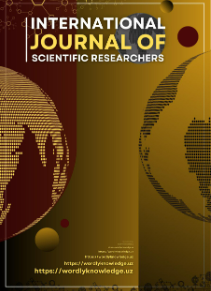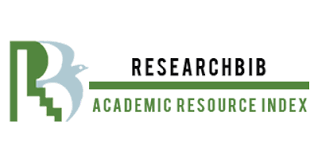OPPORTUNITIES AND OBSTACLES FOR DEEPENING AND IMPLEMENTING EUROPEAN UNION INTEGRATION
Keywords:
European Union, integration, economic unity, political cooperation, challenges, opportunities, sovereignty, harmonizationAbstract
This article examines the ongoing process of European Union (EU) integration, focusing on the opportunities and challenges faced in deepening and implementing further integration measures. Through a comprehensive literature review and analysis, the study explores key areas of integration including economic, political, and social dimensions. The research highlights significant opportunities for enhanced cooperation and unity, while also identifying persistent obstacles such as national sovereignty concerns, economic disparities, and cultural differences.
References
1.Campos, N.F., Coricelli, F. and Moretti, L., 2019. Institutional integration and economic growth in Europe. Journal of Monetary Economics, 103, pp.88-104.
2.Dinan, D., 2019. Europe recast: A history of European Union. 2nd ed. Boulder: Lynne Rienner Publishers.
3.European Commission, 2023. Single Market Report 2023. Brussels: European Commission.
4.Fabbrini, S., 2020. Europe's Future: Decoupling and Reforming. Cambridge: Cambridge University Press.
5.Hooghe, L. and Marks, G., 2019. Grand theories of European integration in the twenty-first century. Journal of European Public Policy, 26(8), pp.1113-1133.
6.Kelemen, R.D., 2020. The European Union's authoritarian equilibrium. Journal of European Public Policy, 27(3), pp.481-499.
7.Koopmans, R. and Schaeffer, M., 2018. De-composing diversity: In-group size and out-group entropy and their relationship to neighbourhood cohesion. Migration Studies, 6(3), pp.324-343.
8.Matthijs, M. and Blyth, M., 2018. When is it rational to learn the wrong lessons? Technocratic authority, social learning, and euro fragility. Perspectives on Politics, 16(1), pp.110-126.
9.Mitchell, K., 2021. Making Europe: The Story of the Erasmus Programme. Journal of Contemporary European Research, 17(3), pp.400-415.
10.Risse, T., 2021. Identities and European Integration. In: D. Kenealy, J. Peterson and R. Corbett, eds. The European Union: How does it work? 6th ed. Oxford: Oxford University Press, pp.81-100.
11.Russack, S., 2022. The Conference on the Future of Europe: Lessons learned. CEPS Policy Insights No 2022-03. Brussels: Centre for European Policy Studies.
12.Schimmelfennig, F. and Winzen, T., 2020. Ever looser union? Differentiated European integration. Oxford: Oxford University Press.
13.Vandenbroucke, F., 2020. The European Pillar of Social Rights: from promise to delivery. In: B. Vanhercke, D. Ghailani and S. Spasova, eds. Social policy in the European Union: state of play 2020. Brussels: European Trade Union Institute and European Social Observatory, pp.35-64.
14.Vetter, S., 2021. Completing the banking union: the final stretch. EU Monitor. Frankfurt: Deutsche Bank Research.
15.Wolff, G.B., 2022. The pandemic has increased the need for and difficulty of euro area reform. Bruegel Blog Post, 15 February.







